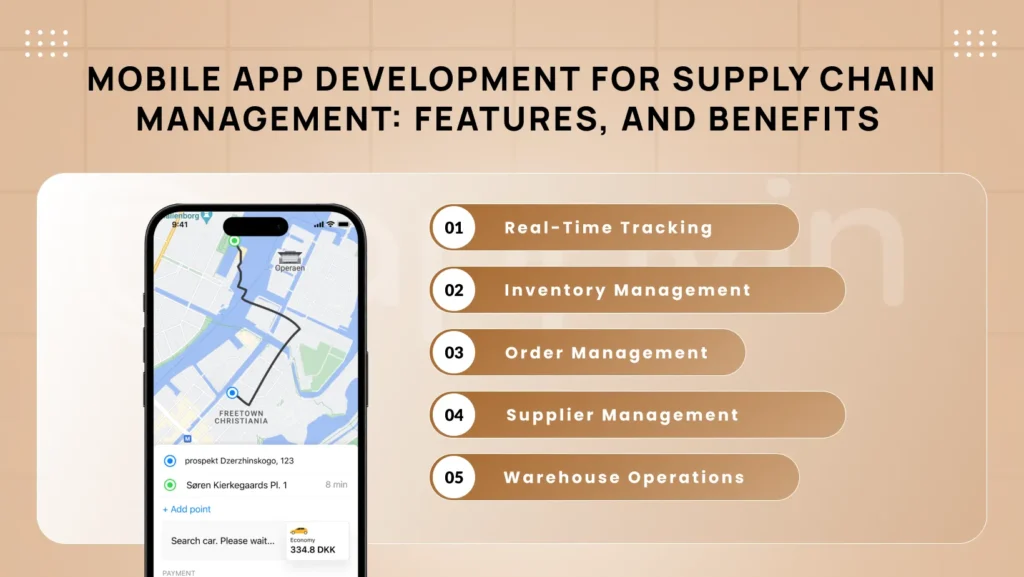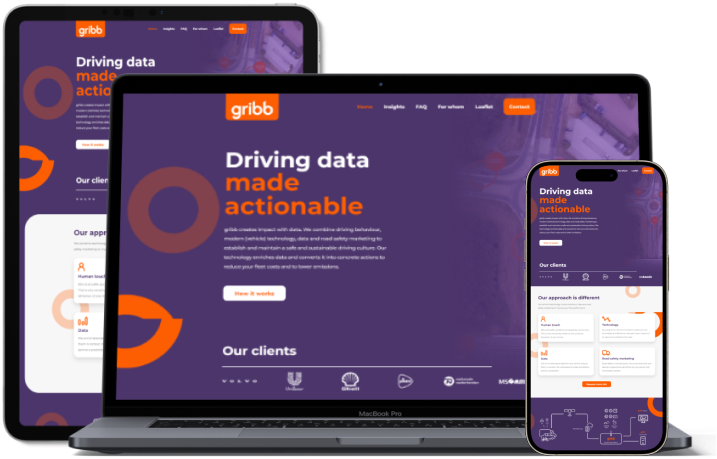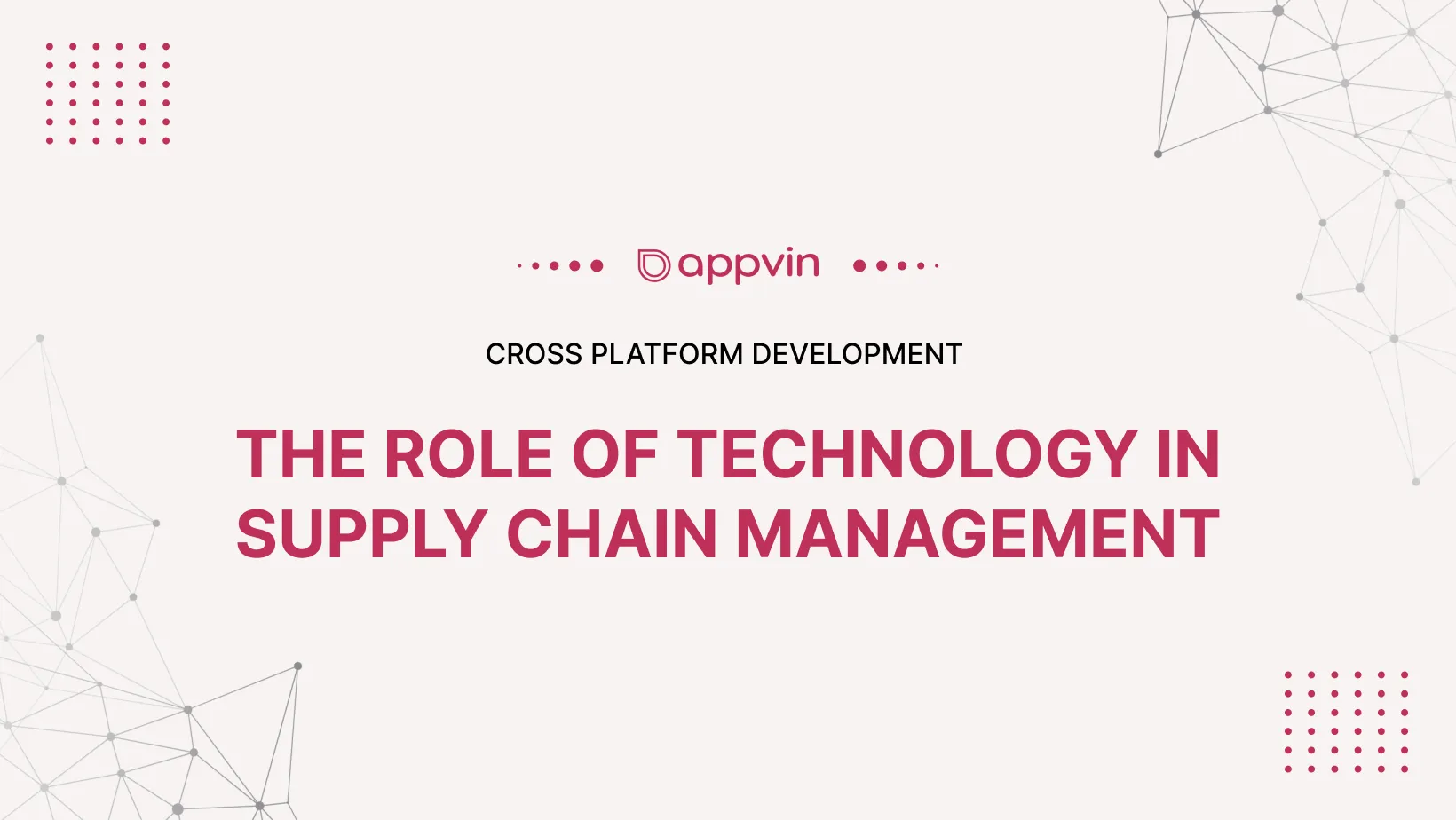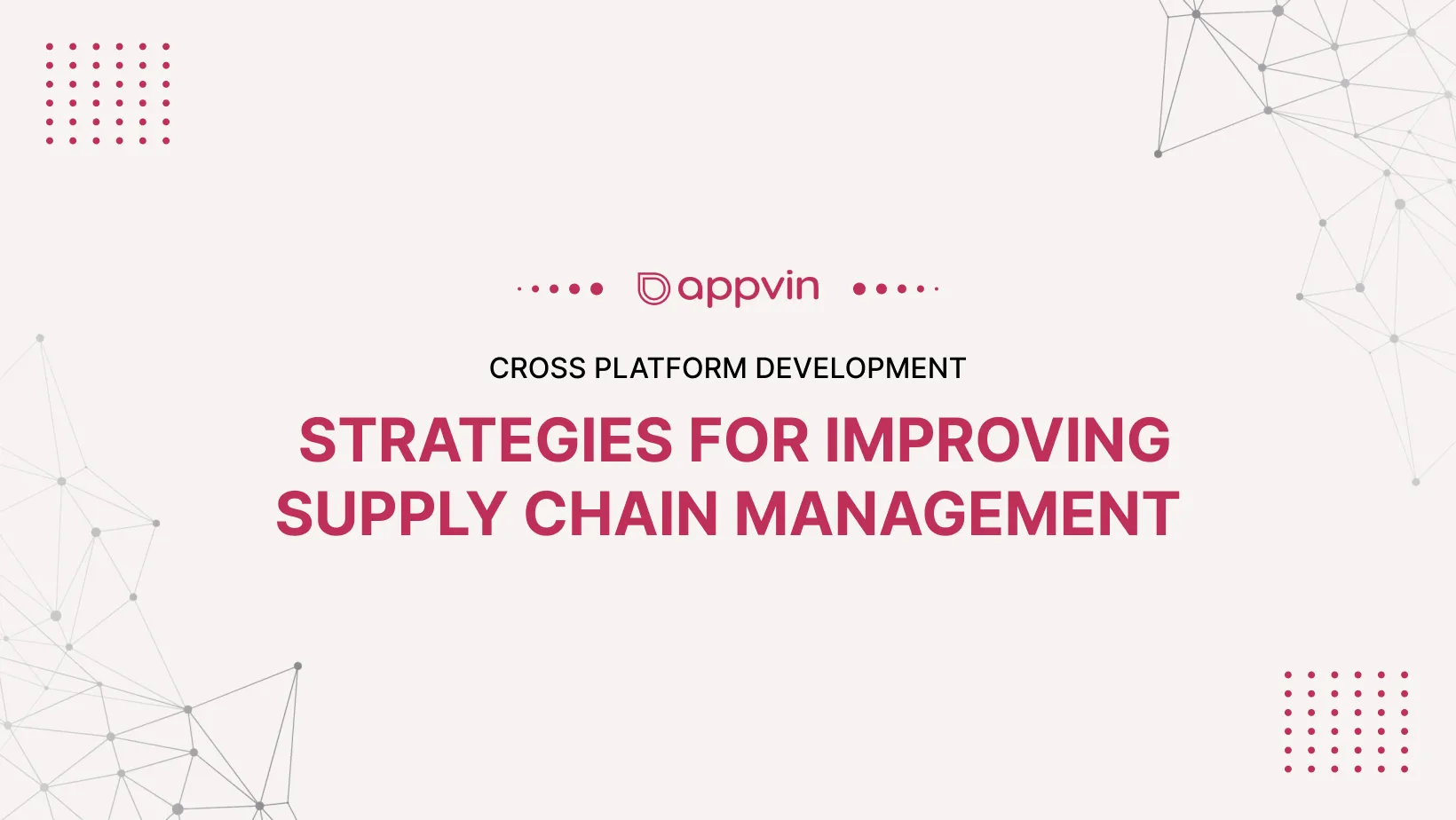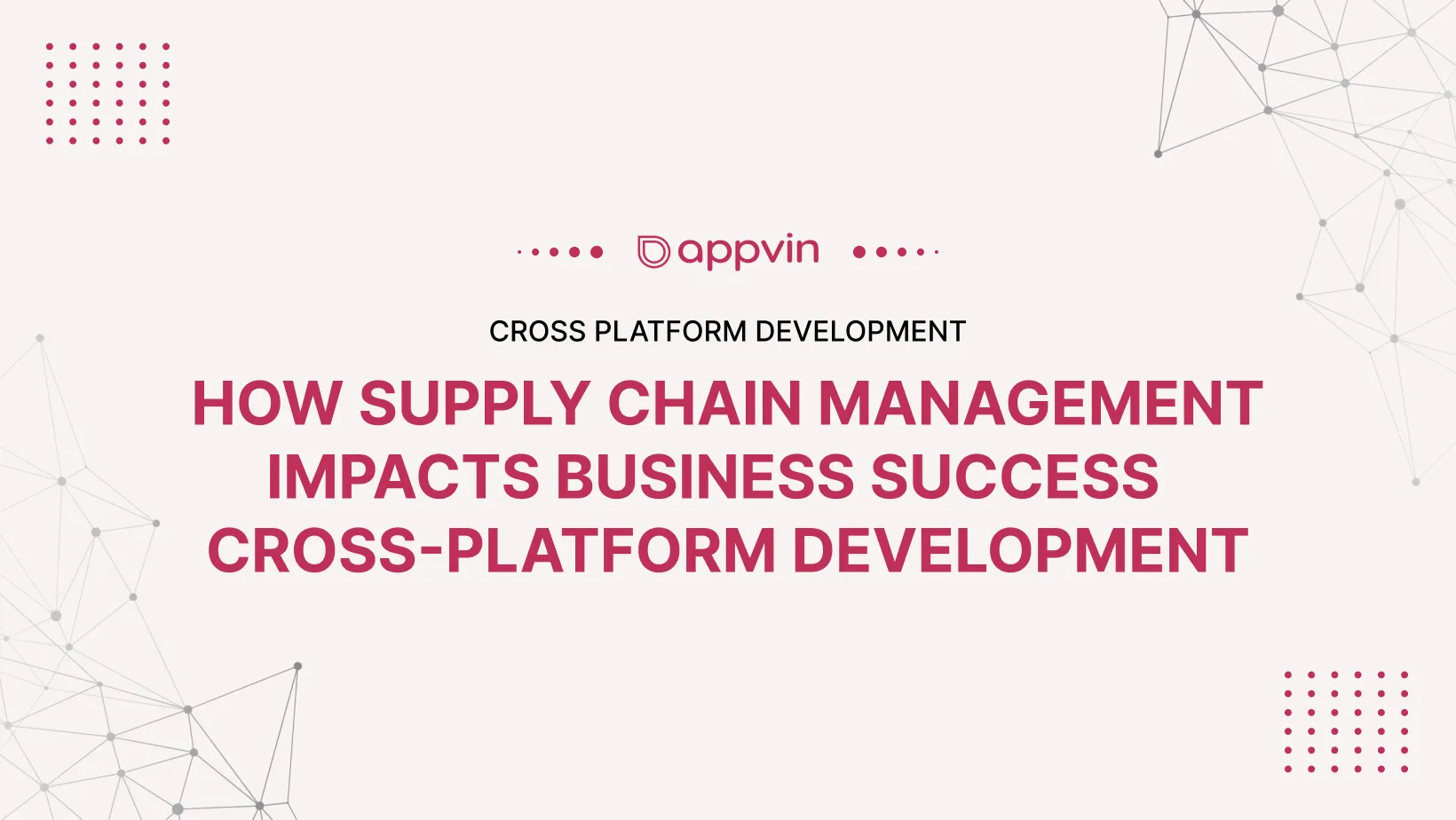Supply chain, or inventory management, can be a stressful and time-consuming job. Tracking orders, supplier-customer relationships, deliveries, and orders can challenge even the most efficient inventory managers. We use apps all the time in our personal lives. We use our phones for payments, streaming, food orders, and cab bookings. mobile app development for supply chain can even help us in our working lives by replacing or improving processes of supply chain. Having the right software or technology stack can improve your supply chain function, increase productivity, and improve your profitability. Many of these apps come with free options or even team discounts, meaning you don’t have to worry about adding much money to your already limited budget. We’ve compiled a list of supply chain and inventory management apps that could streamline your operations.
Mobile app development for supply chain management: Features, and Benefits
Real-Time Tracking:
Real-time tracking is essential for tracking goods throughout the supply chain. For example, you can make shipments, keep an eye on their location, and get up-to-date information about their shipping reputation in real time. Real-time tracking also allows you to look at every stage of the logistics process from start to finish. That means you can see capacity issues, anticipate delays, and get products to your customers on time. To prevent interruptions, lost products, and dissatisfied customers, you should use real-time to gain access to your whole supply chain. Real-time capabilities allow your company to see and respond to supply chain changes as they occur.
Inventory Management:
Inventory management oversees the movement of goods from the manufacturer to the warehouse and finally to the point of purchase. Its primary purpose is to track and document the arrival of the newest products, product returns and product sales in the warehouse. Logistics involves the movement and storage of goods along the supply chain, from material delivery to manufacturers to final product delivery to stores or consumers. Consequently, inventory management is intrinsically tied to the logistics system. Mobile app development for supply chain offer stock monitoring, inventory tracking, and barcode scanning to optimize inventory levels, reduce carrying costs, and prevent stockouts. Barcode scanning can also simplify stock audits and provide correct stock counts to improve inventory accuracy and efficiency.
Order Management:
Order management is the process of integrating orders from different channels with an inventory database, collection of data, order processing, etc. From order placement to delivery, the speed of internal order processing can make or break the business, as customer expectations are extremely high. Whether it’s importing sales orders from online platforms or creating them manually, you need to act swiftly to ensure they’re processed and delivered promptly, meeting customer expectations consistently.
However, the benefits of order management software include fast sales order processing, readily available information, Proforma invoices, order details, reminders for pending payments and documents, work order assignments, product details, and customer information.
Supplier Management:
Handling suppliers effectively is crucial in supply chain mobile apps. Moreover, these apps assist organizations in maintaining a unified supplier directory, analyzing performance metrics, enhancing communication, streamlining RFQ and contract processes, conducting audits and managing certifications, assessing and mitigating supplier risks, and facilitating collaboration on innovation initiatives. Because of these elements, supply chain experts can watch and direct their supplier network, make sure rules are followed, spot the best team members, and build meaningful partnerships. So, in the end, this can improve the fast action and dependability of the supply chain.
Warehouse Operations:
Supply chain management apps provide employees with the tools needed to manage everything from receiving and sporting goods to packaging and shipping. However, barcode scanning makes it easy for warehouse staff to keep track of their inventory, reducing mistakes and increasing productivity. Utilizing warehouse management functions can help your company improve its warehouse operations and accuracy. These functions can meet your company’s needs in a timely and cost-efficient way by handling orders from different sources. Moreover, it is important to select a solution for supply chain management that includes warehouse operations because this is a critical component of the supply chain.
Transportation Management:
With transportation management tools, your company can move raw materials and finished products more efficiently and cost-effectively. Transportation management tools can be integrated with monitoring capabilities for various shipping modes, including trucks, rail, air, and maritime. Furthermore, some desirable features in your supply chain management solution include shipment tracking, fuel cost management, and tracking state and federal laws and regulations.
Document Management:
With the rise of remote working, we’ve all made changes to our work systems to make collaboration easier. One of the most popular solutions for many companies has been to use Microsoft SharePoint or Teams to store documents and files in the cloud. Effective document management is crucial for mobile app development for supply chain to facilitate seamless information flow and collaboration. Furthermore, this entails secure cloud-based storage for centralized access to documents like contracts, invoices, shipping manifests, and compliance certificates. The app should enable easy uploading, sharing, and version control of documents. Furthermore, there should be access controls and audit trails for better safety. Cool features like being able to read and grab data from scanned papers (OCR), digital signatures, and working with old paper systems can make paper-heavy processes better. This cuts down on work by hand and makes sure everything in the supply chain is right.
Analytics and Reporting:
First up, the app needs to present data through understandable graphs and charts for real-time comprehension. Next, it’s expected to predict stuff like product quantity or potential supply chain problems. Following this, users should be able to create reports suiting their needs – like sales data or supplier metrics. On the fourth count, the app needs seamless integration with other systems for real-time updates, keeping users informed. Lastly, timely alerts about possible issues can be a game changer in smooth operations.
Collaboration Tools:
For an effective team, an app with live chat and video calls, task lists for tracking progress, secure file sharing, shared calendars, and a central hub for managing suppliers and partners is essential. Think about the critical aspects of a Supply Chain Management app around Collaboration tools we note several vital points. First, the app needs to integrate smoothly. This means effortless chat and data transfer among users. Second, it needs a solid task assignment feature, easing delegation and tracking of duties across the supply chain environment. Thirdly, real-time collaboration tools, such as on-the-spot chat or active dashboards, are key for agility and quick responses. Fourthly, embracing cool, new tech like artificial intelligence-based collaboration aids can boost efficiency and decision making. Lastly, shaping collaboration workflows to fit individual supply chain processes boosts productivity and improves synergy.
Security and Compliance:
mobile app development for supply chain for managing supply chains need a strong focus on safety and regulation adherence. Firstly, implementing robust validation steps ensures that only verified users can access the app, reducing the risk of unauthorized data access. Additionally, encrypting data enhances security during transmission and storage on handheld devices. However, compliance with crucial industry norms like GDPR and HIPAA is a must for user privacy protection and responding to legal demands. Moreover, regular security checks and vulnerability assessments can bolster the app’s overall security posture. Beyond tech-savvy steps, well-defined data handling & access control rules are needed too. Teaching users about top-notch security manners can lower risks posed by human slips or carelessness. Finally, incorporating features such as remote data wiping or device tracking enhances the app’s security, enabling quick response to device mishaps, theft, or other security issues.
Integration Capabilities
The role of integration skills is crucial in mobile app development for supply chain management are important. These skills enable seamless communication and data sharing between the app and other systems or platforms involved in the supply chain ecosystem. Solid blending with ERP (Enterprise Resource Planning) systems helps sync details about managing stock, buying things, and processing orders. It means all systems have the latest, matching info. This makes decision-making easy and operations quick.
The next point is about integrating with systems managing logistics and transportation. It lets you track shipments and delivery statuses in real time. Moreover, being able to see how goods are moving along the supply chain, we can optimize routes, reduce transit times, and enhance efficiency.
On top of that, integrating with portals for suppliers and vendors makes working with external partners easier. It offers cool things like electronic document sharing, automatic order processing, and performance tracking of vendors. Therefore, this feature makes things clear and builds strong ties within the supply chain network. Lastly, these integration skills also apply to financial systems. This makes invoicing, processing payments, and financial reporting smooth. Such integration makes money transactions easy and guarantees they are done correctly, in line with accounting rules.
Customization and Scalability:
When we talk about customization, we’re referring to the app’s knack for meeting specific needs. This simply means that users can tweak settings, layouts, or even features to match their one-of-a-kind workflows. The app, therefore, remains flexible for varied business methods and users, making it user-friendly and efficient. Then, we have scalability. It points to the app’s capacity to evolve with the growing demands over time. So, as the business scales up or shifts, the app faces no trouble with larger data amounts, more users, or increased transactions. The app stays dependable and snappy as the business gets bigger. Simply put, customization tailors the app to your needs, while scalability ensures it remains robust as your business grows. Together, they promise an app that remains valuable and hard-hitting over time.
Conclusion
With the right tool in place, your business will be able to keep up with the ever-changing industry. With a single platform solution, you can get the supply chain management features you need, as mentioned above. AppVin’s mobile app development for supply chain come with a full suite of essential features to help your business streamline its supply chain activities.

